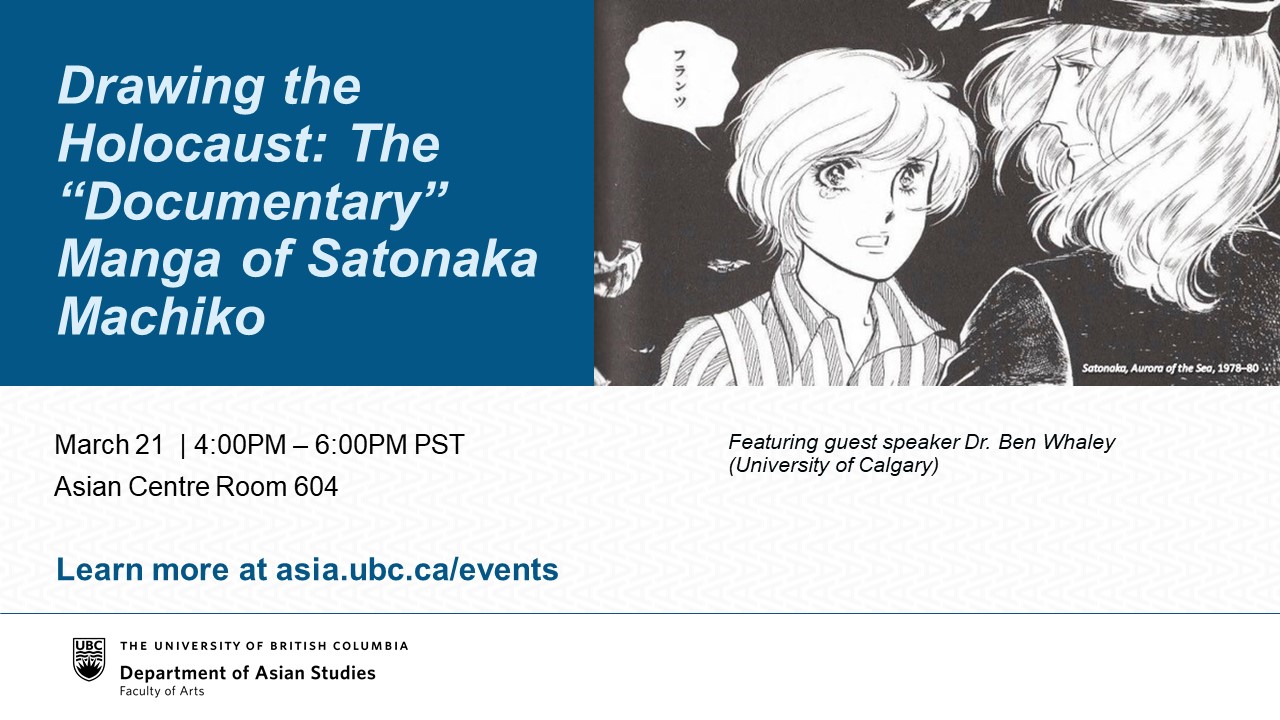This talk examines the presence of the Holocaust in shōjo manga from the 1960s to the 1980s. Why is the Holocaust an enduring thematic concern within postwar Japanese manga and what are implications of these representations for Japan’s own processes of remembrance and education about the war? I begin with an analysis of the influence and reception of Anne Frank’s The Diary of a Young Girl (1947 Dutch, 1952 Japanese) in Japan, which has resonated deeply with Japanese readers and fostered a subgenre of fictional Holocaust-themed shōjo manga loosely inspired by Frank’s narrative. I then turn my attention to three key works by Satonaka Machiko (b. 1948) arguing that these manga reformulate the widely disseminated image of Anne Frank as the quintessential child victim of war in an effort to better acquaint readers with the realities of life in the camps. Furthermore, Satonaka’s incorporation of quasi-“documentary”-style drawings alongside her manga-style artwork demonstrates shōjo manga’s expansion of its own narrative and visual lexicon in an attempt to convey the profound pathos of genocide.
This talk is free and open to the public. No registration is required.
Date & Time:
Friday, March 21, 2025 | 4:00pm – 6:00pm (PDT)
Location:
Asian Centre Room 604, 1871 West Mall, Vancouver
Speaker
Ben Whaley is Associate Professor of Japanese in the School of Languages, Linguistics, Literatures and Cultures at the University of Calgary. His research examines ethno-racial identity and national trauma in Japanese popular culture. He is the author of Toward a Gameic World: New Rules of Engagement from Japanese Video Games (Michigan, 2023). His essays on manga and video games have appeared in the Journal of Asian Studies, positions asia critique, and the Journal of Japanese Studies.

